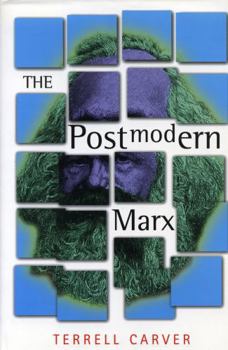The Postmodern Marx
Select Format
Select Condition 
Book Overview
In the wake of Communism's collapse in Eastern Europe, one of today's foremost interpreters of Marx's texts and ideas offers postmodern readings of canonical texts to discover what Marx has to say to our postmodern condition. Terrell Carver takes advantage of the ideological release of Marxism from its association with Soviet Communism to explore how Marx's writings can be reread in the spirit in which they were written: as a critique of capitalist society.
Employing textual and narrative analysis developed within postmodernism, Carver carefully examines Marx's language--and the language around Marx--to arrive at a reassessment that is free from the restraints of past dogma. He addresses ways in which Marx is changing: which texts are read, how hermeneutics and deconstruction have altered our reading of them, and trends toward viewing Marx not simply as a revolutionary or an economist but as a political thinker whose insights are relevant to current debates over free markets and mixed economies.
Carver first leads readers through a new, detailed examination of Capital. He then explores Marx's relationship with the socialism of his contemporaries, critiques translations of Marx, examines works written with Engels, considers Marx's relationship to Hegel, and applies Marx's thought to issues of gender.
These re-readings convey the importance of continuing to engage Marx's thought and show that there is more to Marx than we might ever hope to discover. It is a lucid and provocative work that liberates Marx's ideas for what they can contribute to a fresh evaluation of our present political milieu.





